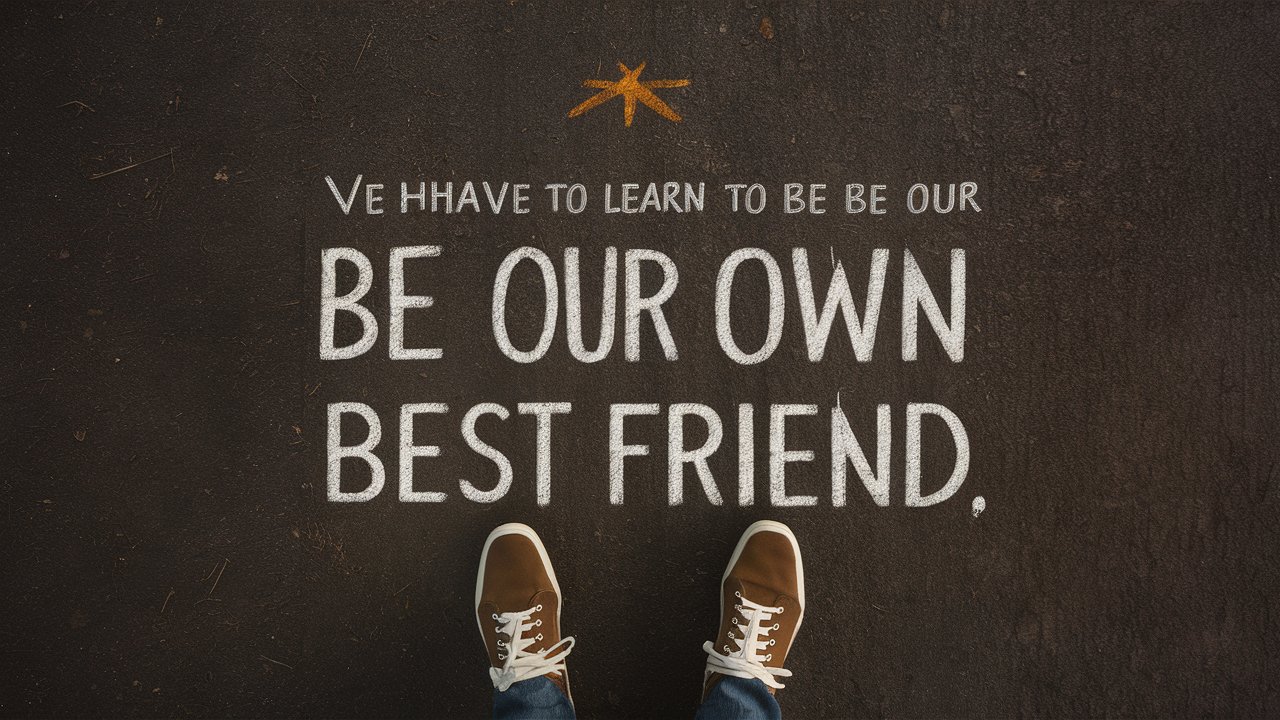2. We have to learn to be our own best friend, because we fall top easily into the trap of being our own worst enemies. 2016

We have to learn to be our own best friend, because we fall top easily into the trap of being our own worst enemies. 2016
Introduction:
As human beings, we all have a tendency to be self-critical and self-judgmental. We often focus on our flaws and shortcomings, and this negative self-talk can lead to feelings of inadequacy, self-doubt, and low self-esteem. In order to overcome these self-destructive tendencies, we must learn to be our own best friend. By cultivating self-compassion and self-love, we can break free from the cycle of negative self-talk and become our own greatest source of support and encouragement.
Body:
The trap of being our own worst enemy
When we are overly critical of ourselves, we can become our own worst enemy. Negative self-talk can lead to feelings of anxiety, depression, and low self-esteem. This can cause us to doubt our abilities, make us feel unworthy, and prevent us from reaching our full potential.
Cultivating self-compassion
Self-compassion is the practice of treating ourselves with kindness, care, and understanding, even when we make mistakes or fall short of our expectations. This means learning to be patient with ourselves, accepting our flaws and imperfections, and acknowledging our strengths and accomplishments.
Learning to be our own best friend
Learning to be our own best friend means cultivating a deep sense of self-love and self-acceptance. It means being kind and compassionate to ourselves, and treating ourselves with the same care and respect that we would show to a close friend or loved one.
Overcoming self-doubt and self-criticism
By becoming our own best friend, we can learn to overcome self-doubt and self-criticism. Instead of focusing on our flaws and shortcomings, we can focus on our strengths and accomplishments. We can learn to acknowledge our mistakes and failures without judging ourselves harshly, and we can use these experiences as opportunities for growth and learning.
Benefits of self-love and self-compassion
There are many benefits to cultivating self-love and self-compassion. It can improve our mental health and well-being, increase our resilience and ability to cope with stress, and enhance our relationships with others. It can also help us to develop a sense of purpose and meaning in our lives, and to pursue our goals and dreams with greater confidence and enthusiasm.
Practicing self-care
Practicing self-care is an important part of learning to be our own best friend. This means taking care of our physical, emotional, and spiritual needs, and making time for activities that bring us joy and fulfillment. This can include exercise, meditation, spending time in nature, or engaging in creative pursuits.
Overcoming self-sabotage
When we are our own worst enemy, we can engage in self-sabotaging behaviors that prevent us from achieving our goals and living the life we want. By cultivating self-love and self-compassion, we can learn to recognize these behaviors and overcome them. This means learning to set boundaries, saying no when necessary, and prioritizing our own needs and well-being.
Conclusion:
In conclusion, we must learn to be our own best friend in order to overcome negative self-talk and self-doubt. Cultivating self-love and self-compassion is essential to breaking free from the cycle of self-criticism and becoming our own greatest source of support and encouragement. By practicing self-care, setting boundaries, and prioritizing our own needs and well-being, we can overcome self-sabotaging behaviors and pursue our goals and dreams with greater confidence and enthusiasm.
visit: https://techinsightguru.com/